October was a “picture collection month” for us. We went back to both Scotland and Italy, to collect shots that would help us show the countries that we are speaking about in our film. And they are splendid countries indeed.
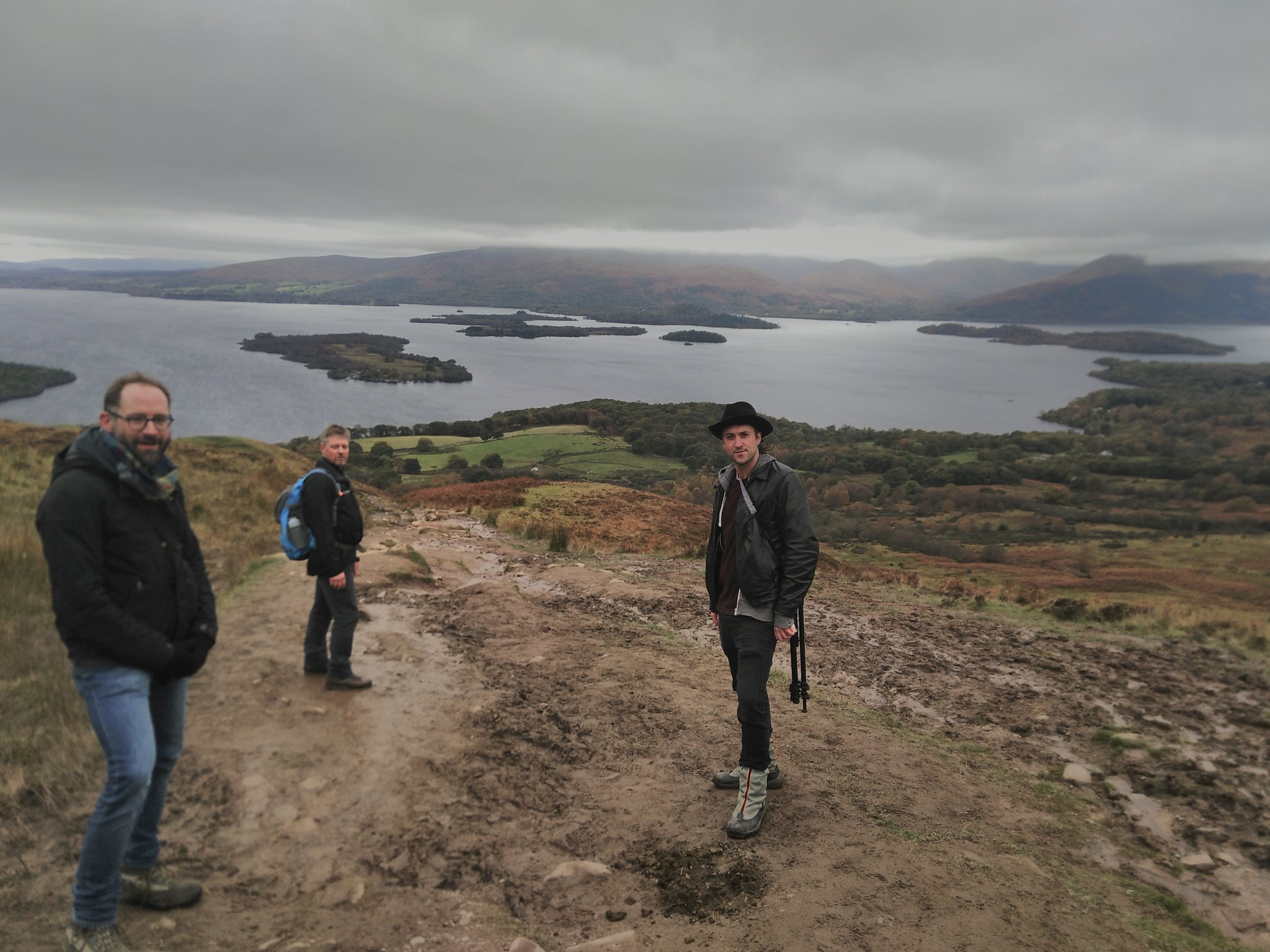
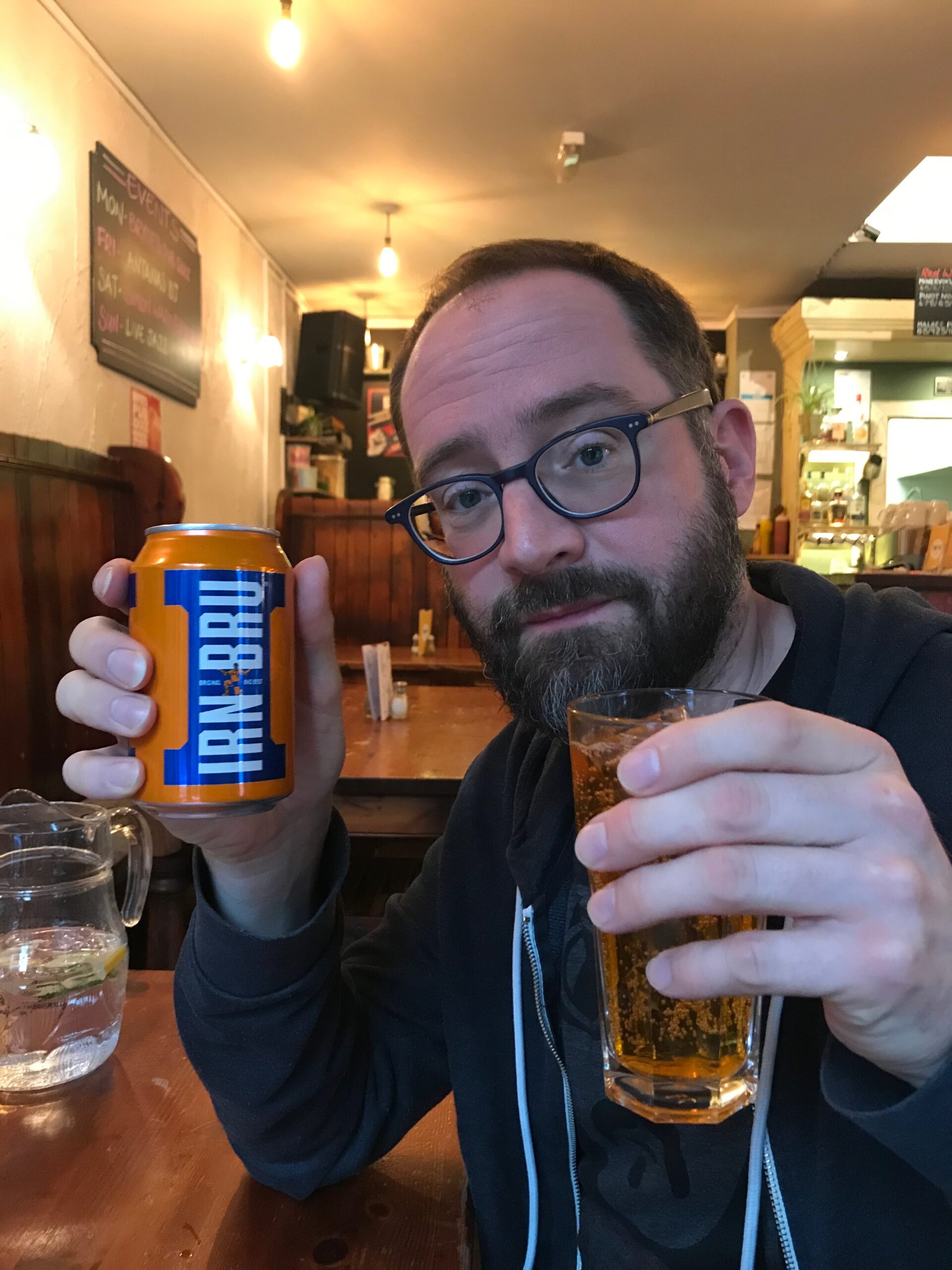
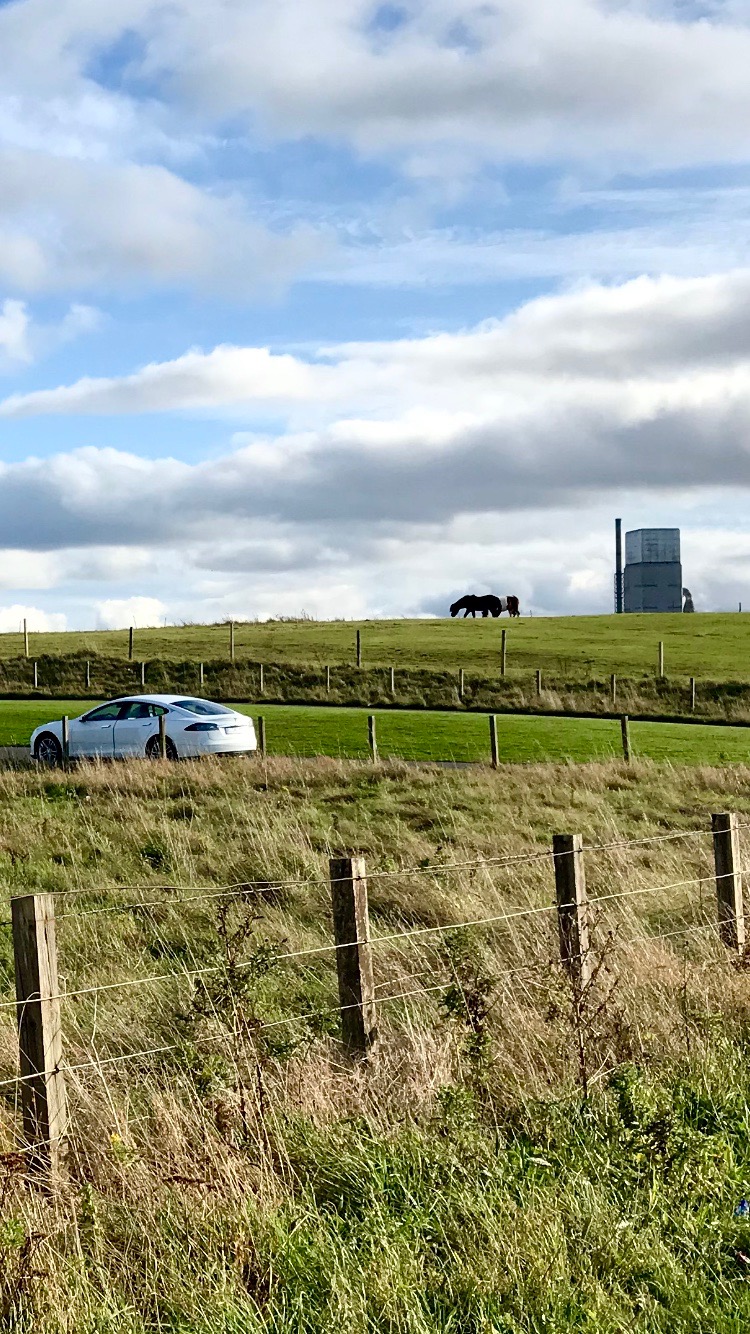
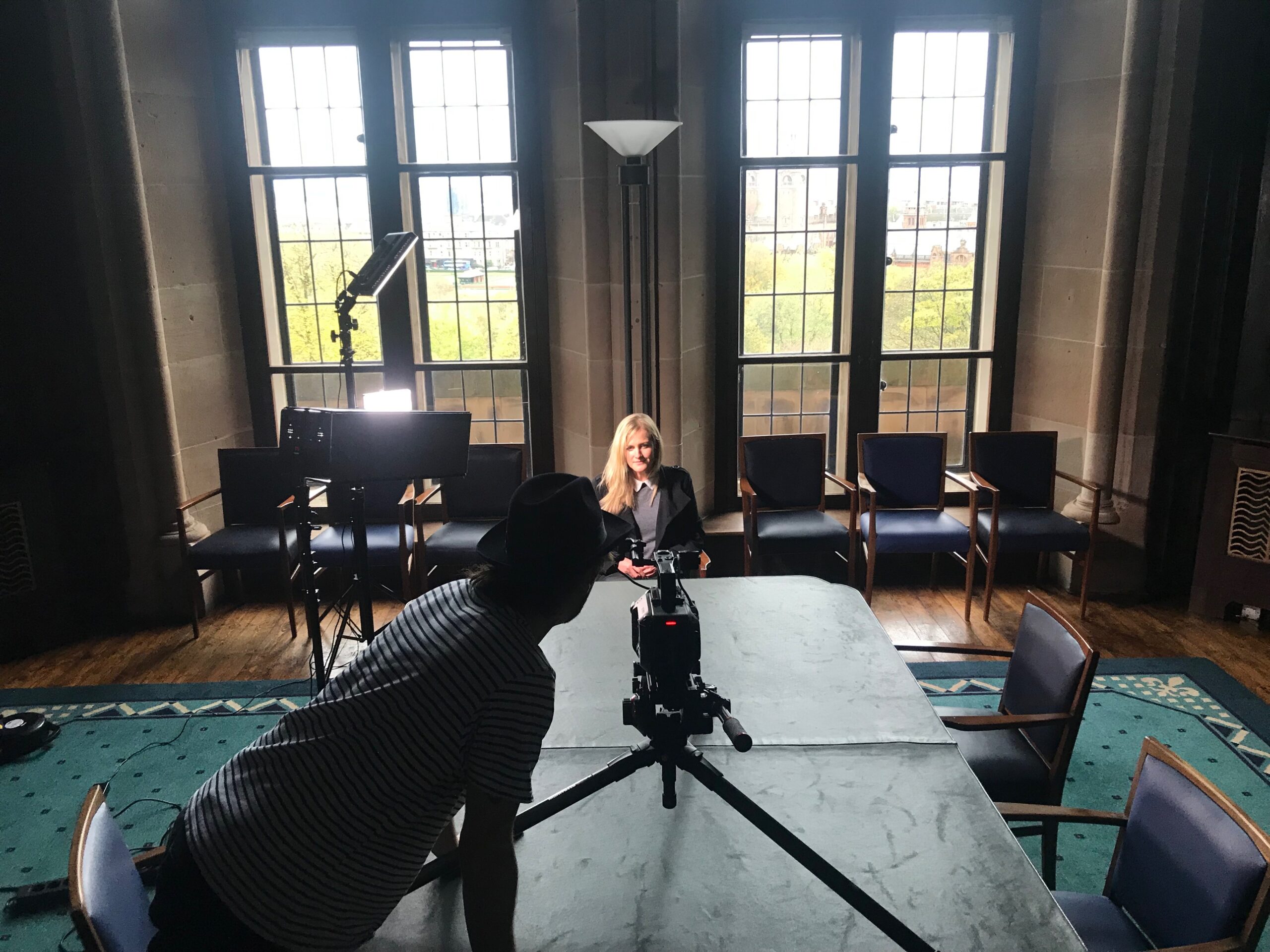
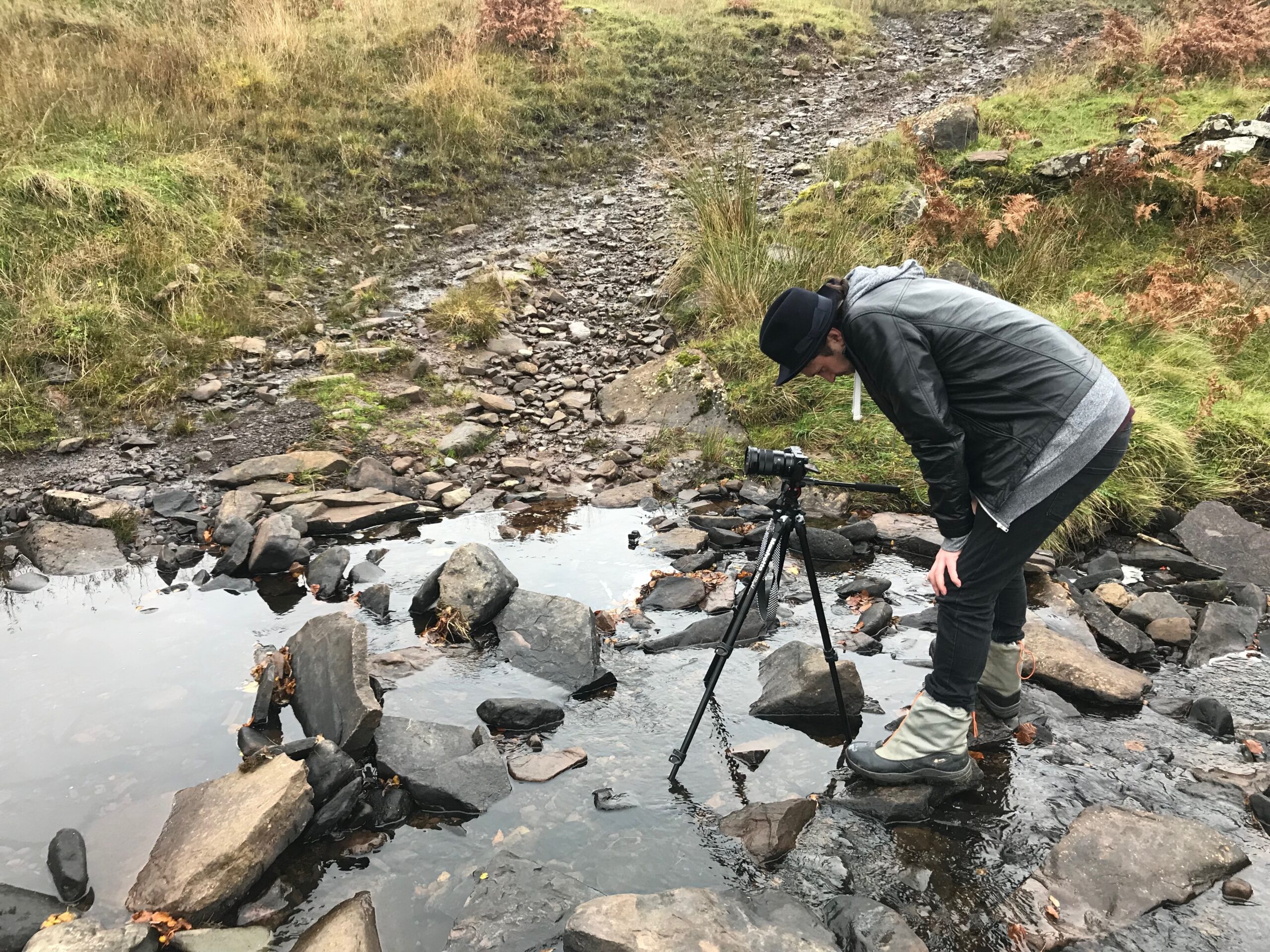
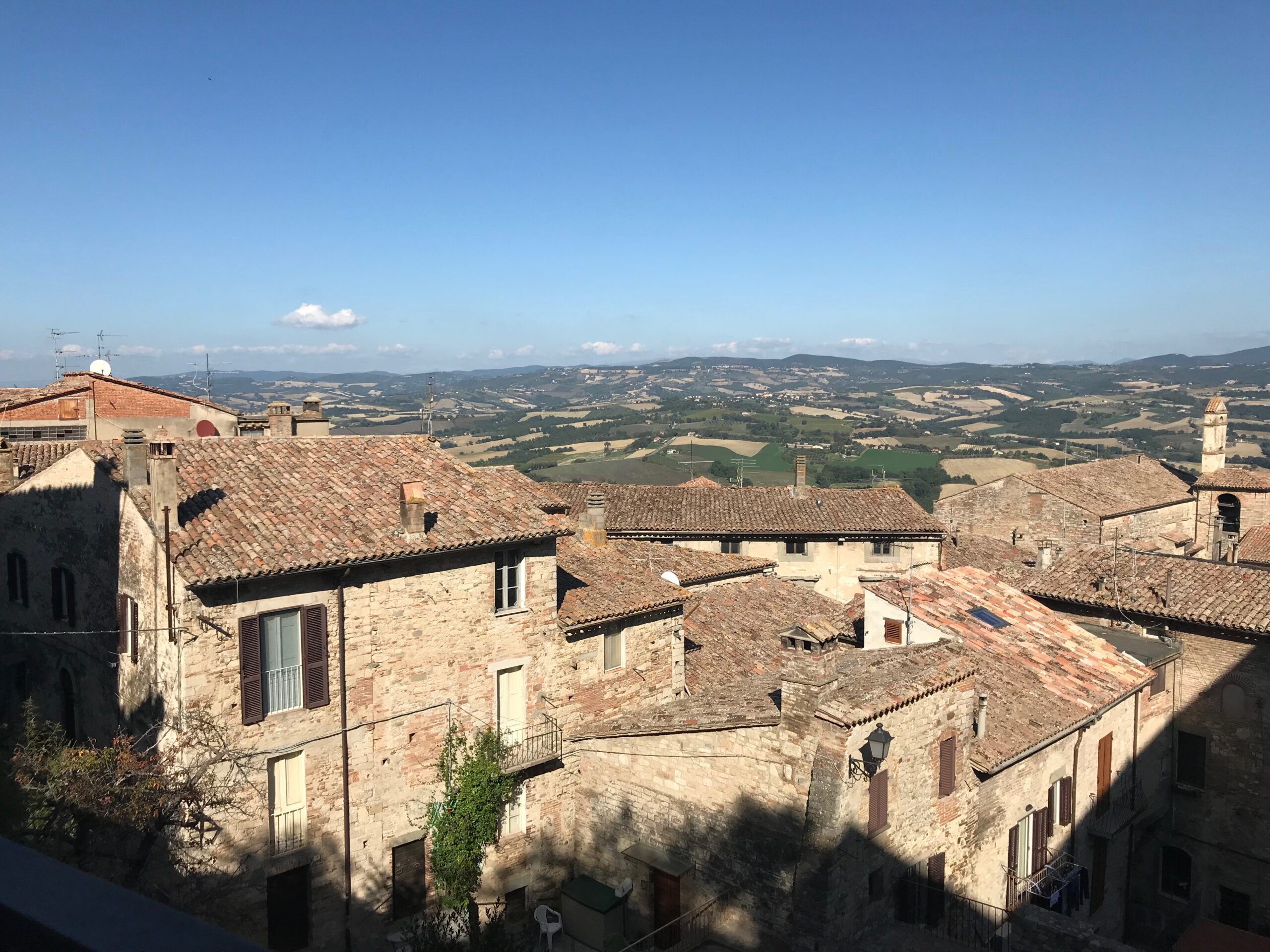
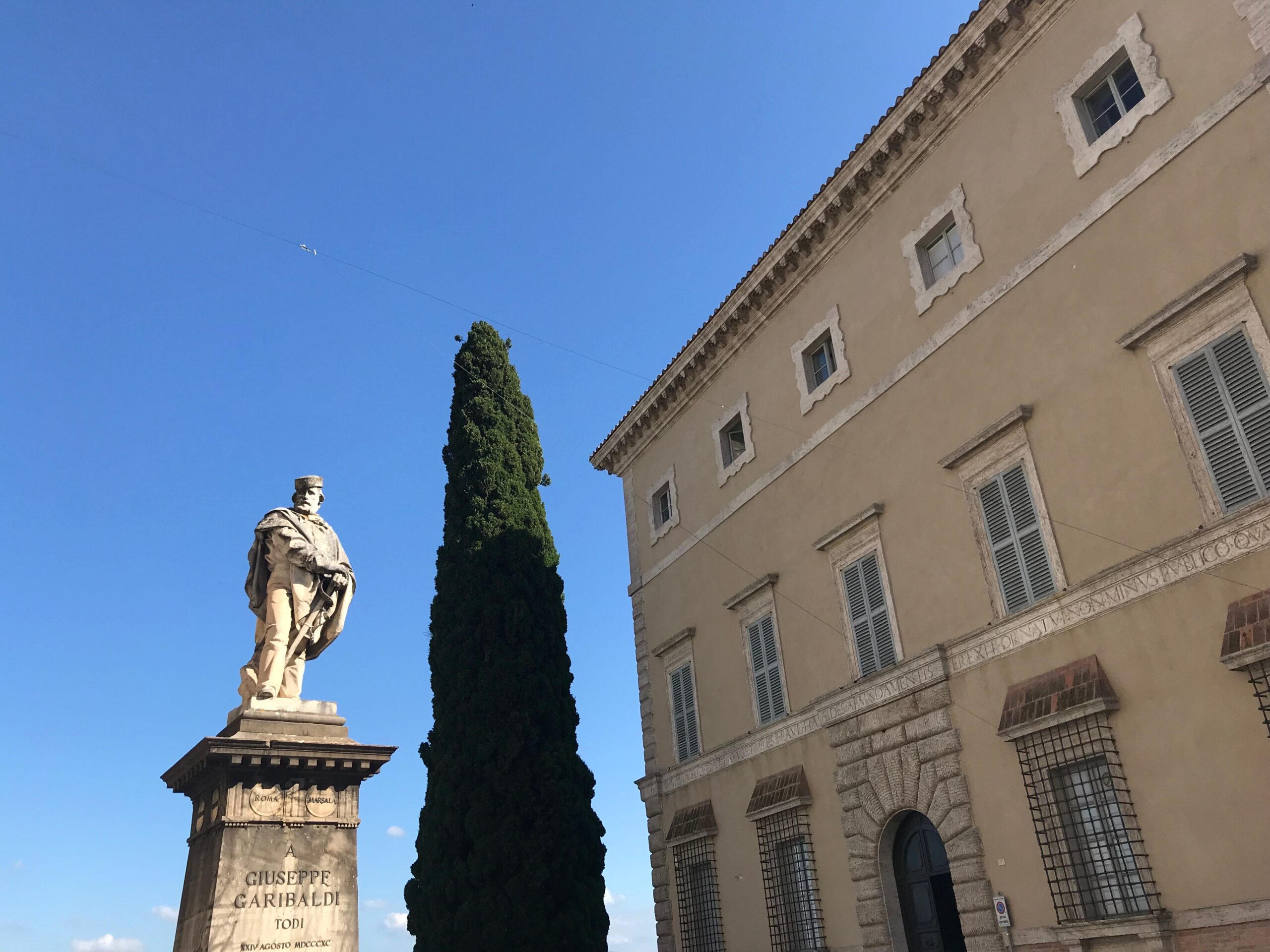
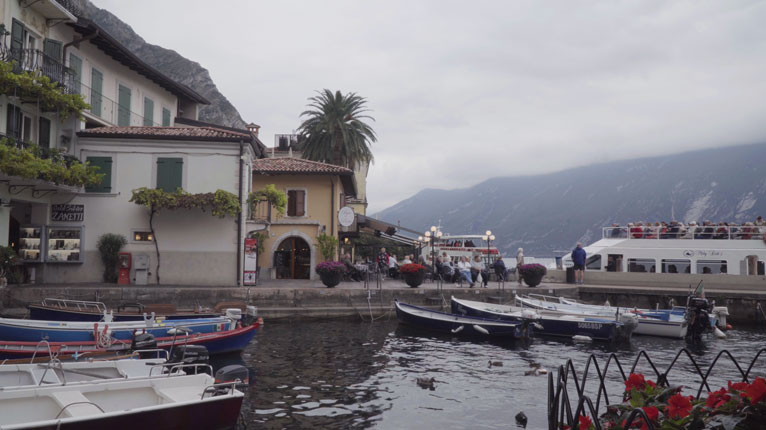
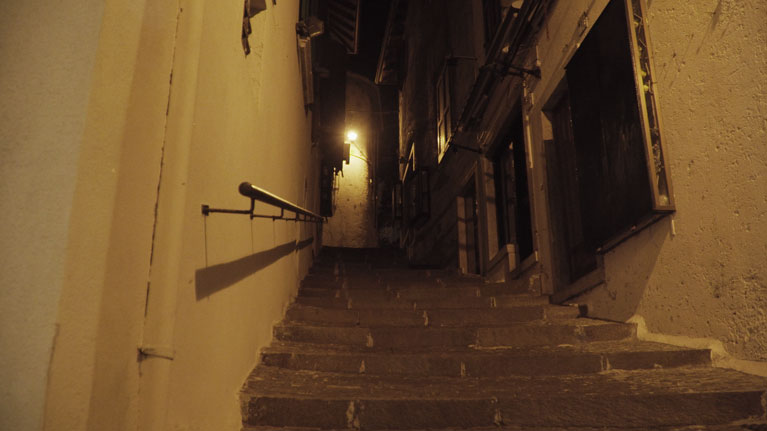
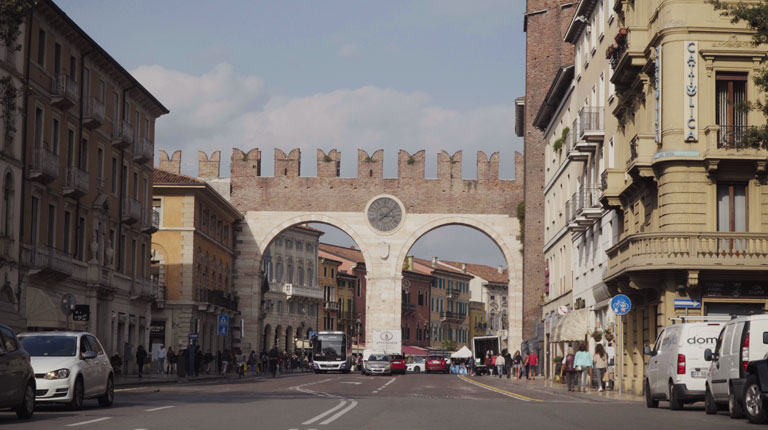
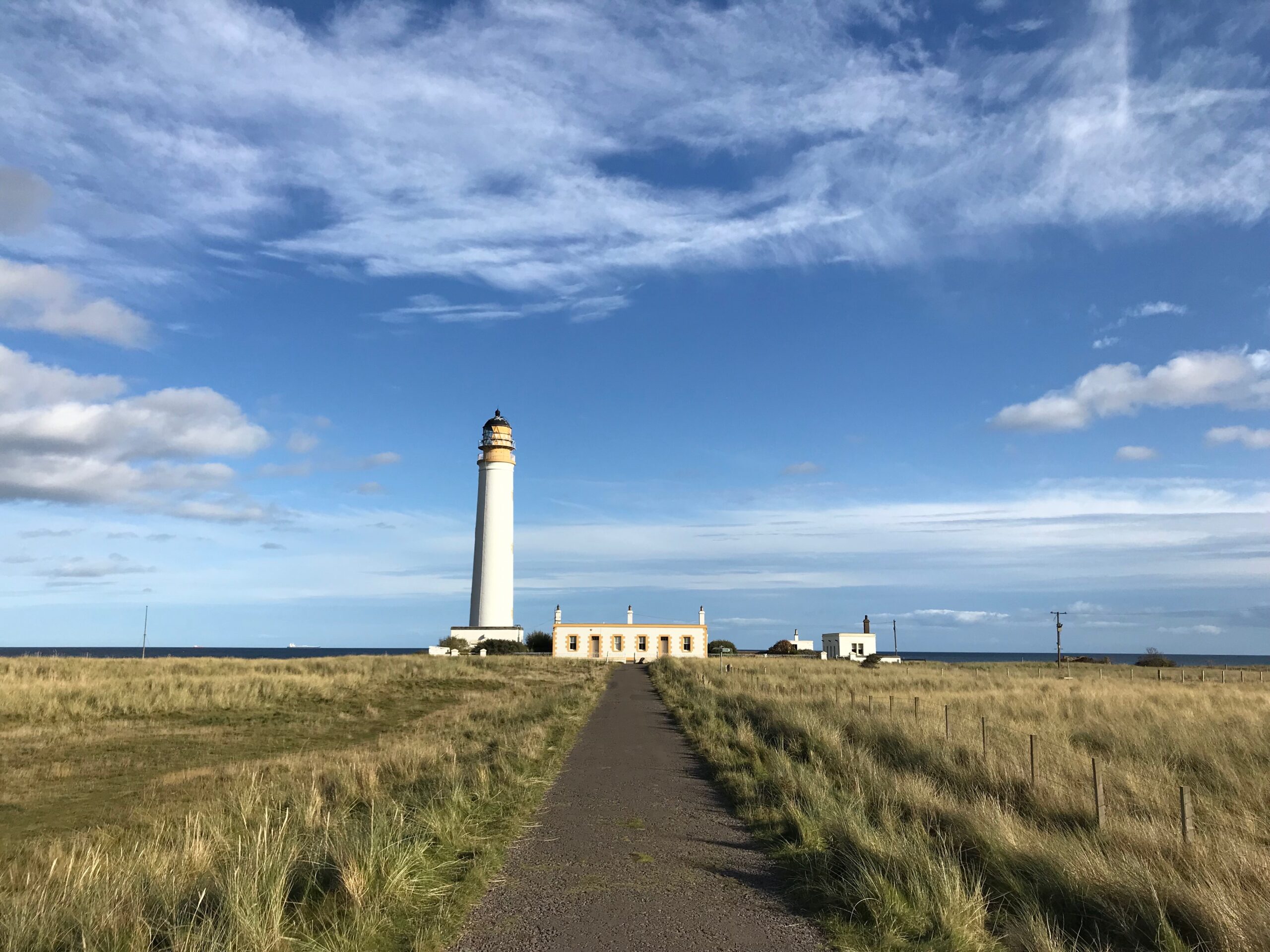
October was a “picture collection month” for us. We went back to both Scotland and Italy, to collect shots that would help us show the countries that we are speaking about in our film. And they are splendid countries indeed.










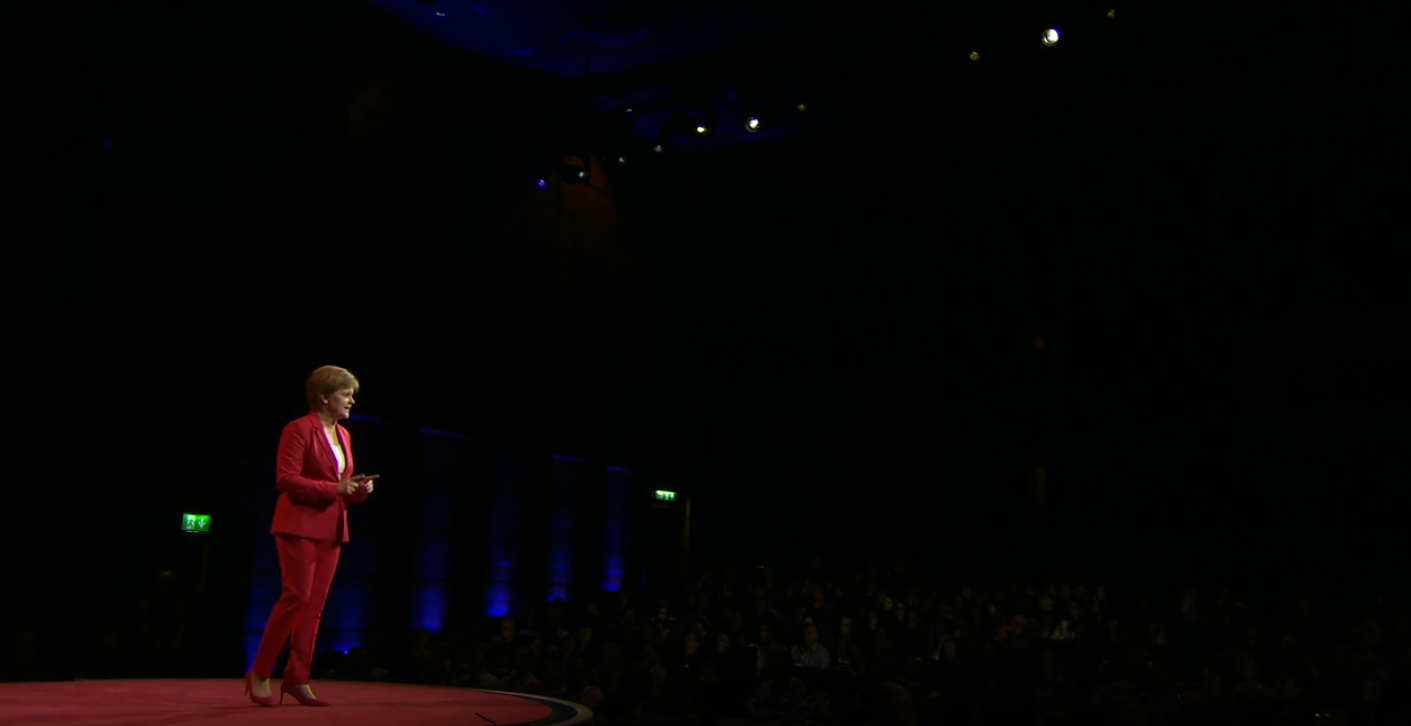
The Scottish First Minister Nicola Sturgeon gave a TED Talk — it was just published on the TED.com website. In her talk, she makes the case for governments to focus the efforts of their work no longer on GDP, but on increasing the well-being of their citizens:
In early 2018, we decided to tell the story behind the Scottish and other governments who were trying to join forces, to move beyond GDP. Not knowing if this would happen, and not knowing how it would play out. The fact that the Wellbeing Economy Governments now do exist, and that Nicola Sturgeon just delivered her courageous message is very exciting for our film project.
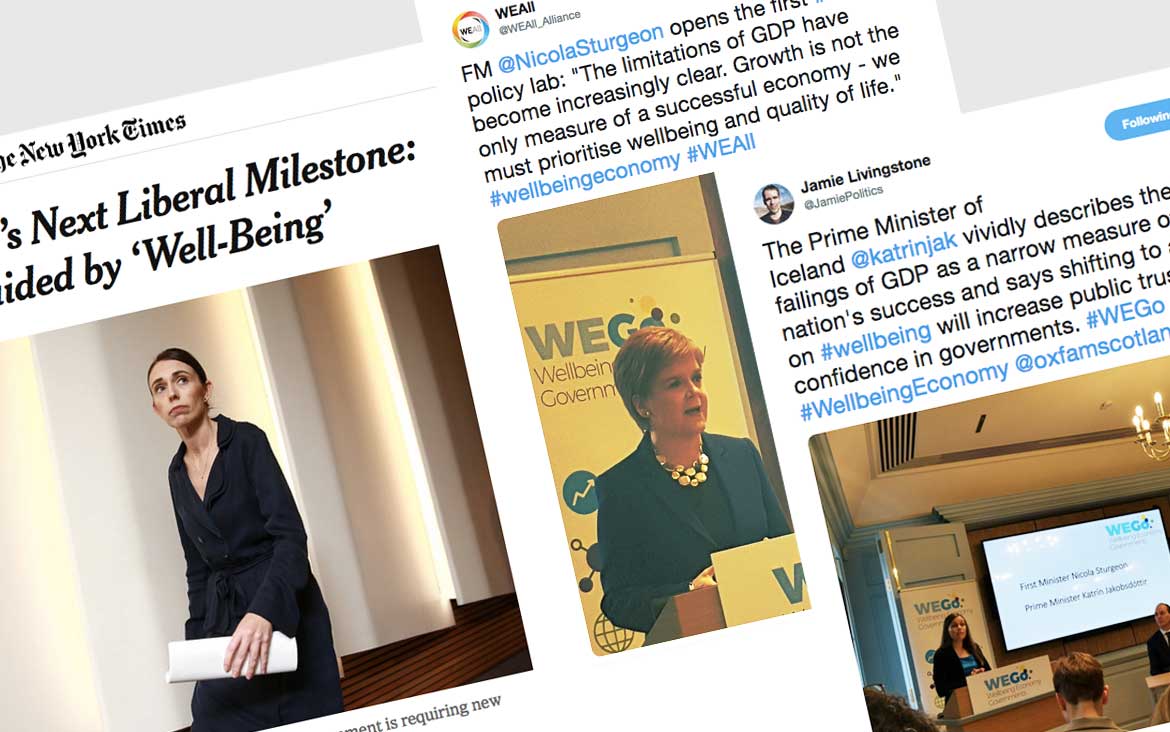
In the past weeks and months, we’ve been excited to notice how the Wellbeing Economics Governments have been making progress.
New York Times About New Zealand’s Wellbeing Budget
The most visible example may have been the New York Times article about New Zealand’s Wellbeing Budget. We were excited to see this in part also because in January we had the chance to interview the very same Grant Robertson who is mentioned in the article for our film — he is New Zealand’s Finance Minister. And some of what he told us then was pretty much verbatim repeated in the article. The text provides an inspiring view-from-the-outside picture of what the current New Zealand government is trying to do differently, and it’s encouraging to see that the NYT is taking note.
The First Wellbeing Economy Governments Policy Lab
Even closer to our film’s subject was the first meeting of the WEGo policy lab in Scotland on May 1st of this year — in a house that Adam Smith himself had lived in.
Back in November, we were in South Korea as the WEGo — the Wellbeing Economy Governments initiative — was first publicly presented at the OECD Forum in Incheon. What may be the crucial part of this project is said Policy Lab. If governments want to move towards a holistic approach to Wellbeing of People and Planet, they need to do a lot of things very differently. And that is hard.
So in order to figure out how to make this happen, they are trying to learn from each other, by organising these policy labs. In the words of First Minister Sturgeon:
But we know that we don’t have all the answers. We know that we have got a lot to learn – and a lot to gain – from working with other like-minded countries.
That’s why the Scottish Government established the Wellbeing Economy Governments initiative and it’s why we’re so pleased to be hosting the first of these Policy Labs. And it’s why we’re delighted to have such a wealth expertise represented here today.
Our film’s protagonist Katherine Trebeck attended the opening session, where both the First Minister of Scotland, Nicola Sturgeon, and the Prime Minister of Iceland, Karin Jakobsdottir, gave speeches (New Zealand’s Prime Minister Jacinda Ardern was not at the lab, but NZ sent representatives). And Katherine published a blog post about what that was like, on the Wellbeing Economy Alliance website. Here is how she explains in her text what the WEGo are about:
WEGo is about governments rolling up their sleeves, linking arms, and walking together down a path that sees national success as being defined by the quality of life of citizens rather than the growth rate of a country’s GDP. As the Chief Economist of the Scottish Government said, WEGo is about driving the wellbeing agenda in economic, social, and environmental policy making.
First Minister Sturgeon’s speech from the event is available online, and some of her statements show where the WEGo are headed, particularly when it comes to their stance on the role of the GDP:
GDP has too often come to be seen not just as an indicator of a country’s wealth, but as the main measure of its success.
(…)
As governments, we see the promotion of sustainable and inclusive growth as a vital way of raising living standards for all. But we also understand that growth is only of any real value if it makes people’s lives better, it is not, and never should be seen, as an end in itself. We have to test whether we are creating a fairer, healthier, happier nation in the process.
And then I cannot help but notice: The heads of these three Wellbeing Economy Governments are all strong and inspiring women. I’m beginning to doubt that that’s a coincidence. And instead a sign of a future that needs a lot more female leaders.
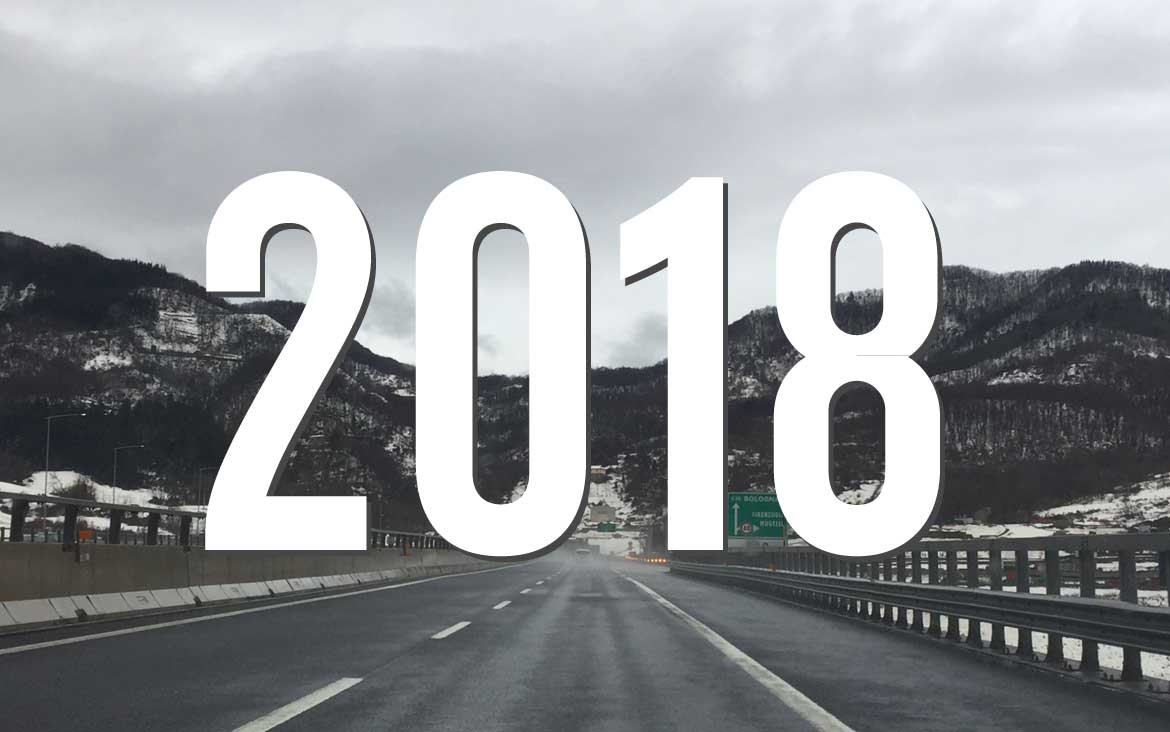
The year is drawing to a close — here’s a look back on what has happened in our project so far. 2018 has been an incredible ride for us, in many respects.
It all started back in February, when we found out that two things were going to happen. One, a group of government representatives from Scotland, Costa Rica and Slovenia were going to gather in Ljubiljana in March, to say openly to the world that they want to pursue a different type of politics in economics, an approach that respects the needs of people and planet. At the same time, we heard that one of the people working on making this government summit happen, Lorenzo Fioramonti (a fierce critic of the GDP and of the way most economic policies are currently being designed), was going to leave academia and join the world of Italian politics, and run for office with the 5 Star Movement. Since the 5 Stars were the strongest contender in the Italian election, this was very interesting news — there was the potential that a man who had written books about how bad a measure the GDP is could become a minister in a new Italian Government!
So we decided that we had to start filming this story, no matter what — a story about people who want to move our world away from its endless “growth obsession”. So we went on our first trip: In the middle of February, we drove up to Scotland, to meet with Katherine Trebeck and other people at Oxfam, to find out what that government summit was going to be about. Katherine had worked on this thing from within the Scottish Oxfam offices, where she’d been a researcher.
A few days after returning from this one, we were already off on our second trip — down to Italy. And this time we went fully electric. We met with Lorenzo in Brescia where he had to give a campaign talk, and then we drove him down to Rome, to be able to follow him during this last week of campaigning before the election on March 4th. Lorenzo’s family and his home were still in South Africa where he had been living for many years. As he was launching his career in Italian politics, he turned his parents’ house — which has lots of space — into his new temp home as well.
The week we spent together in Rome was remarkable. We were traveling around the city non stop, went on lots of campaign appointments, saw plenty behind the scenes stuff in the “5 Star Campaign”, we went to their secret campaign headquarters in the center of Rome, and felt the vibe behind and on the stage at the big campaign rallies and events. It felt a little bit like being inside a real-world “House of Cards”.
In early May, it had turned out that the summit in Slovenia was not going to take place — so we had to go back to Glasgow and speak with the team there again — about what was going to happen next. Timing was tight, and we had to somehow fit the trip in. We couldn’t drive — it takes four days driving time alone to go up there and back — so we flew this time around. But we compensated for our CO2 emissions with Atmosfair — like we do with every flight which we cannot avoid.
In theory, a documentary filmmaker only starts rolling his camera after s/he has thoroughly investigated and written down what the story is meant to be, exactly, that s/he wants to tell in the film. Based on this description, you go out into the world, and try to collect your story — or the version of it that reality will present you with. It’s obvious that life will never turn out the way you intend it in your head. But it’s still incredibly helpful to have that idea — otherwise you don’t know what you are shooting for.
It didn’t quite happen that way in our case. Instead, we had been obliged to start rolling the cameras, following these two people — Katherine and Lorenzo — to document what they were trying to do, to help us move to a post-GDP world. But what does that mean in terms of the story that we’re telling? How do we structure it, how do we intend to keep viewers engaged in a topic that may seem very technical to many? We had lots and lots of conversations with lots and lots of people, and particularly with Kim Münster, an experienced film director and producer, who agreed to produce our film and help us structure the whole thing.
In April, we returned to Rome for our second trip there. On the way down, we stopped over in Venice, to meet with and interview Petra Reski. She’s a German writer, but she has been living in Italy (closely following the “5 Star Movement”) for decades now, and she gave us a very helpful perspective on what this movement means for Italy. Then we journeyed on to Rome. Lorenzo had won his seat in the Italian election, and we spent another five days with him around town — while the party was trying to form the new Italian government. The negotiations with the “League” had failed, and now the 5 Stars were trying to figure out how they could potentially form a government with the “Partito Democratico”. And Lorenzo was trying to prepare for his new role, potentially as the Minister for Industrial Development in the new government.
On May 7th, we had the chance to meet up with Tim Jackson in Berlin. He’s a well-known professor, researcher, author and speaker, working on the post-growth agenda. I’d met him once before, in 2017, as we were preparing our climate change show “vollehalle”. It was fun to meet him again in Berlin. He gave a speech in the very impressive hall of the Evangelische Akademie Berlin — check out the floor lights in the pictures below — and we were allowed to film that speech.
And then at the end of May, we returned to Scotland. This time with the Tesla, again getting on the Le Shuttle train under the Channel. I really love that train! The trip first took us to Tim Jackson’s university in Surrey, where we had the chance to do a sit-down with him, and interview him for about an hour.
Then we journeyed on to Glasgow and then Edinburgh, for a very particular reason: on May 23rd, the Task Force meeting for the Wellbeing Economy Governments — the group that was originally supposed to meet officially in Slovenia in March — was happening at a hotel in Edinburgh. The idea was to plan the next potential official public meeting, which could now be in South Korea at an OECD conference, at the end of November. So there were representatives from the Scottish, Costa Rican and Slovenian governments, plus people from Oxfam and a couple of universities, getting together to hash out how they could develop their group until that conference. And we were in the room, with the cameras rolling! It was very exciting!
In Edinburgh, Katherine also told us that she was going to go to Costa Rica herself, to speak at a conference, and to (potentially) meet the Costa Rican president, and tell him about this project, and get him excited about it. It was clear — we had to go, too! So we booked two seats on the same flight that she was going to be on (again, we compensated for our CO2 emissions with Atmosfair), to travel with her to Costa Rica, only two weeks later!
But just before that, I had the hunch that I had to go back down to Italy. The forming of the government there had become this never-ending thriller — negotiations with the PD had been cancelled only days after our last trip there, because of a very controversial TV appearance of the former leader of the PD, and so the 5 Stars turned back around to negotiate once again with the right-wing “Lega”. When they finally tried to propose a government together, the Italian President Mattarella refused to sign them into office, for fear of a European backlash against the new minister of economics, a Euro critic. It was apparently all coming to a blow, with the 5 Stars organising a rally to demonstrate against the President, when at the last minute a compromise was found, and the goverment was sworn in. And so the demonstration against the President turned into one to celebrate the first time the 5 Stars were in an Italian Government. Since I only had two days, there was no way to drive down again, so I went on yet another flight, and spent two days in Rome, and got a few great shots and impressions of the vibe both within the 5 Stars, and also from Lorenzo’s point of view, who — at that stage — seemed nowhere near becoming part of the new government, despite the fact that he had been quite close to Luigi di Maio and the party leadership during the election campaign.
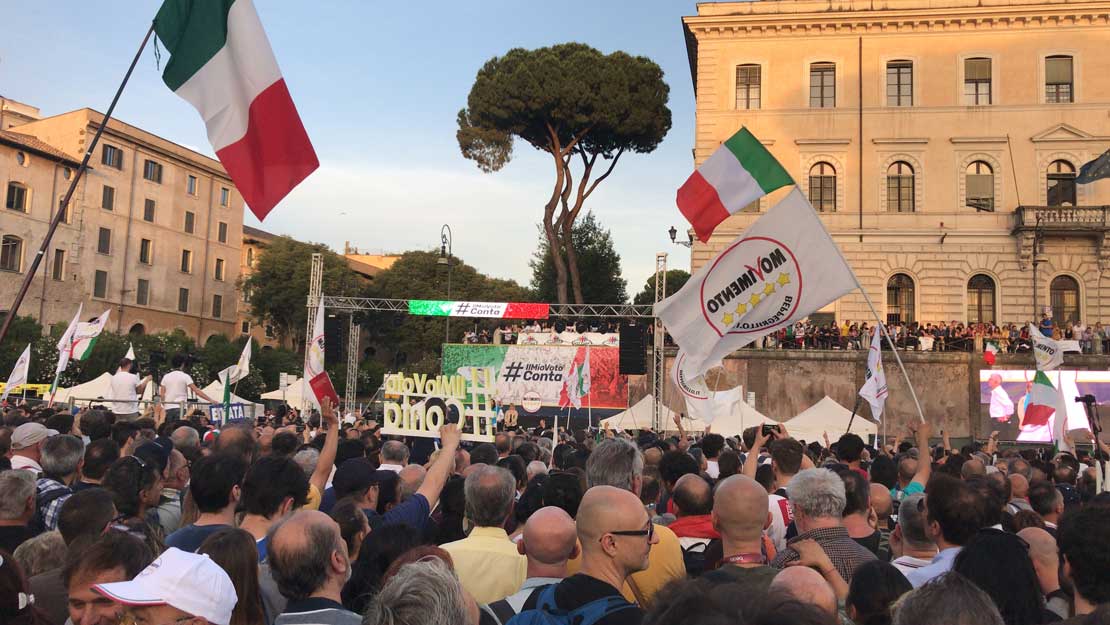
And then, only three days later, we went to Costa Rica. It was a great experience — we met incredibly interesting people, the conference called Omina (about sustainable fashion) was inspiring, and even though Katherine did not manage to meet the President (he had to cancel his appearance at the conference), she did meet the First Lady, and we were in the room with them. We returned to Berlin on June 11th, after being away only six days — it had felt much longer because it had been so intense.
The next trip took us back to Rome, we left Berlin on July 1st. This time, we wanted to be there when Lorenzo brought his whole family — his wife and the two kids — back from South Africa. We documented their arrival at Fiumicino Airport. But even more importantly, we had the chance to witness Lorenzo arriving at his new office — he eventually did end up in the government, he had been named Vice Minister in the Ministry of Education and Research (“MIUR”), and we were there to see his first days on the new job.
In mid August, we returned to Scotland once again — this time because Katherine was coming back from her summer holidays, and we wanted to be present (and film) as she was getting an update about the state of things with the Wellbeing Economy Governments from the Scottish government team.
Which takes us straight to our last Italian journey so far for the film, in early September — and this one was by far the most tiring because we went to so many different places. Our first stop was Geneva where we interviewed Alvaro Cedeno (he’s in the pictures from the Costa Rica trip — but he lives and works in Geneva). From there, we traveled to Milan, where we met up briefly with Katherine (!) who happened to be there that night, and then we shot an interview and other material with a start-up company that we may include in our film.
From there, we traveled on to Genua where the motorway bridge had crumbled a few weeks earlier, and we needed to get shots of that. And from there, we traveled on to Rome, where we spent some more time with Lorenzo — we drove him to a couple of TV studios, for example, where he was giving interviews. And finally, we went with him back up north, to Tuscany, where he had meetings in Pisa and Lucca. It was a super intense trip, but again well worth it.
In late September and early October, we started a little sub-project within our film project — this blog right here, and the social media accounts that we’re using, to publish behind-the-scenes stuff around making this film.
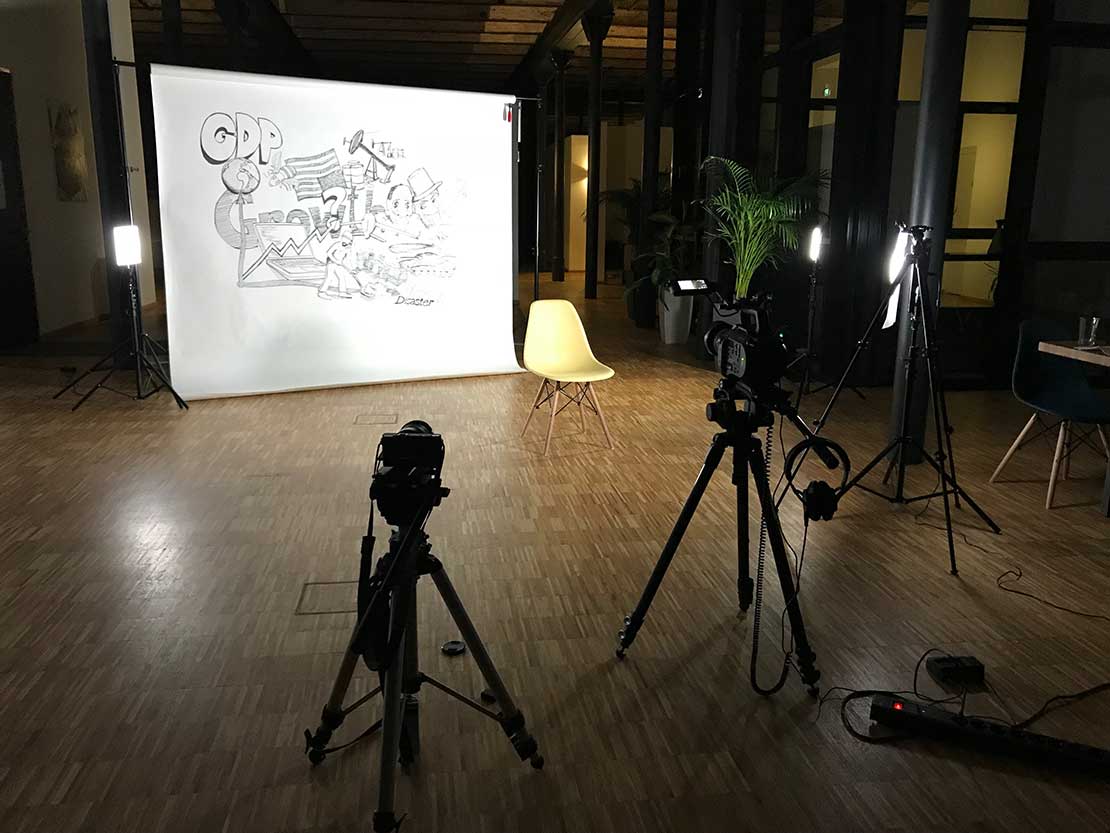
Finally, in the middle of November, our most intense traveling and shooting period began. Within a very short time frame, we first went on our latest road trip back up to Scotland, met with Lorenzo in Berlin and then traveled to South Korea.
Katherine’s husband Mark agreed to be interviewed by us — which was really nice. And we joined one of his Dramble Tours: he himself does these guided tours of Glasgow that include stops in six carefully selected pubs where you get to sample six different carefully selected Scotch whiskys. We had fun. (I was just a bit cold, to tell the honest truth, my jacket wasn’t warm enough …)
Only two days after our return, Lorenzo came to Berlin! Together with his assistant Nicoletta they came for a few meetings. That made life easy for us — no need to travel to Italy to film our Italian protagonist!
And finally, our last trip this year: to South Korea. The Wellbeing Economy Governments initiative (“WEGo”, here is the website) was going to be launched at a big OECD conference on measurement and statistics there, so the Scottish Government team, teams from other governments, and Katherine were going to be there. And Lorenzo was coming as well. So we had to go, too, and see what it was going to be like, to see that initiative see the light of day. Just like in South Korea, we spent a good deal of time with Katherine, and even managed to fit in a last day of “light tourism” in the old part of Incheon — the city where the whole thing was taking place.
(I already posted a fairly extensive blog post about what we learned at the conference.)
So … that was the summary of what we’ve been up to this year, making this film. (Not to mention other projects that we have worked on.) This does not include, of course, a whole bunch of little things that we were working on here at the office: editing work for funding applications, the countless revisions and reworkings of our various (German and English) treatments and other documents.
2019 will probably begin for the film in the second half of January, with yet another trip to Scotland. We hope to get done with the main bulk of shooting by March — in other words, more or less exactly a year after we started. And after that, we need to sit down and start to work out how to actually make this film — sift through all the material, edit it, and do all the prost production. There is a lot of work ahead of us, and it will be, without a doubt, another very interesting year.
We’ll hope to post another video, about the trip to South Korea, towards the end of this week — so stay tuned! And other than that, have a Merry Christmas Season, and all the best for 2019!
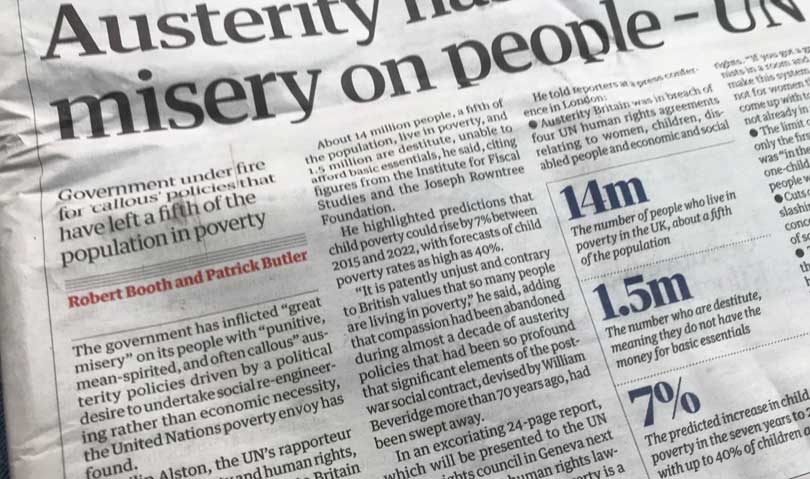
We are just now returning from our trip to England and Scotland, after conducting a range of amazing interviews for our film — with inspiring people both in Scotland and in England. At the same time, we couldn’t help but notice the ripples of political shockwaves rolling through the United Kingdom. The most obvious one being Brexit, of course, which was incredibly hotly debated right when we were in Edinburgh and Glasgow. The PM Theresa May had just presented the results of her negotiations with the EU in Parliament, and all the media were (and still are) full of the ensuing debate. But on Saturday, I got an even greater shock when I picked up an issue of the Guardian.
The front page article was about a report from the “UN rapporteur on extreme poverty and human rights”, Philip Alston. He had completed a two-week mission to Britain, following up earlier indications that the situation of the poor and their numbers in the UK were highly alarming. His current report confirms that the situation is dire — after years of austerity policies. Even worse, according to his reporting, the situation is not just unfortunate or tragic, it is the will of the ruling political establishment in Britain.
14 million people in the UK live in poverty — that is one fifth of the population. 1.5 million are destitute — they do not have the money for basic essentials.
And that is happening in the fifth-largest economy of the world, with record numbers of millionaires and billionaires. The size of the issue is hard to even comprehend.
Here are a few quotes from the article:
The government has inflicted “great misery” on its people with “punitive, mean-spirited and often callous” austerity policies driven by a political desire to undertake social re-engineering rather than economic necessity, the United Nations poverty envoy has found.
In others words: a UN official literally says that the British Government is deliberately cruel to poor people.
… compassion had been abandoned during almost a decade of austerity policies that had been so profound that significant elements of the post-war social contract (…) had been swept away.
In other words, the British Government is ripping apart the fabric that holds society together, by giving more to the rich and not caring at all about the poor.
In [his] report (…), the eminent human rights lawyer said that in the UK, “poverty is a politicial choice”.
And we are talking here of the world’s fifth largest economy!
(…) Alston said that the problems were “obvious to anyone who opens their eyes to see the immense growth in food banks and the queues waiting outside of them, the people sleeping rough in the streets, the growth of homelessness, the sense of deep despair that leads even the government to appoint a minister for suicide prevention and civil society to report in depth on unheard-of levels of loneliness and isolation”.
The British Government has a minister for suicide prevention! And yet they don’t think that there is a problem:
The ministers he met (…) were almost entirely dismissive of criticisms of welfare changes and universal credit, he said. Instead they described critics as political saboteurs, or said they failed to understand how it worked.
Scotland is one of the example countries that our film will speak about. And the local Scottish Government is apparently trying to do what it can to work against the horrible effects of the political decisions coming from London:
(…) authorities in Scotland and Northern Ireland are frantically trying to devise ways to ‘mitigate’, or in other words counteract, at least the worst features of the government’s benefits policy (…)
The way many economists and policy-makers think is not only deeply troubling because it is destroying our planet. It’s also deeply troubling because it is destroying people.
That is why we are making our film about Wellbeing Economies. Because this insanity needs to end, and we want to help tell that story.
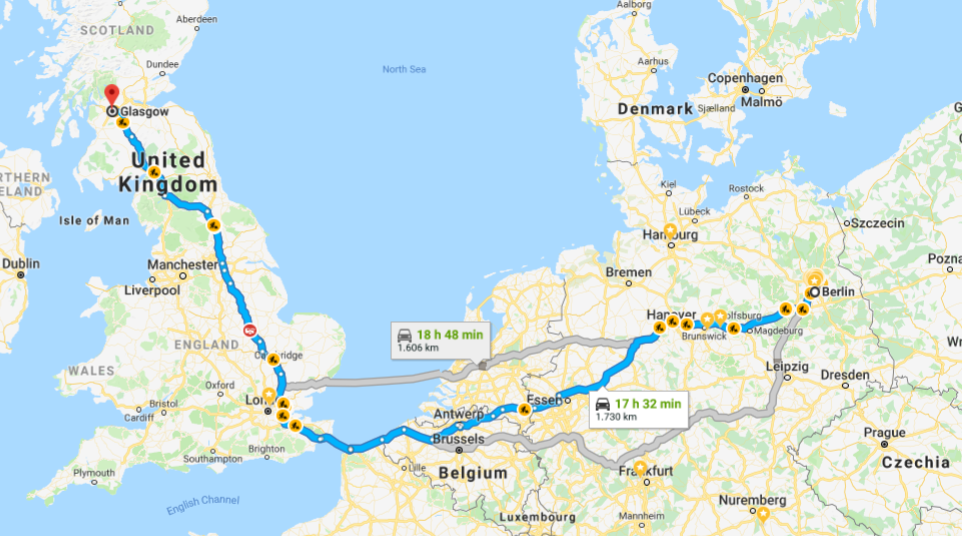
This week Nick’s on holiday, next week I’ll be away from my desk for a few days. Once we’re both back, our next trip for the film is coming up. In the middle of November, it’s back to England and Scotland.
It’s always a bit of a haul to get there because, as we’ve described here, we do most of our travelling around Europe with an electric car. So it’s a two-day trip to go one way.
Our first stop will be London, where we have an interview scheduled with a political activist, then we’ll drive on to Northampton, where we’ll do another interview, that one’s with a young academic. Then on up to Glasgow — we’re meeting up with Katherine Trebeck again, to get her latest news, and we’ll also hopefully be able to speak with a couple of people from the Scottish Government, whom we’ve met before already, and with whom we want to catch up quickly before everyone goes to South Korea, for the OECD World Forum on Statistics, Knowledge and Policy. Also, Nick’s folks live in Edinburgh, so we’ll see them and get to stay at their place and enjoy their hospitality.
Then it’s back to London, where we’ll meet with someone who will be involved in contributing music and potentially something more to our film … we cannot share details yet, but stay tuned, we’ll hopefully be able to share some specifics later in the month. We’ll also do some video reporting from our trip, of course, that’s what this video blog is for!
You must be logged in to post a comment.